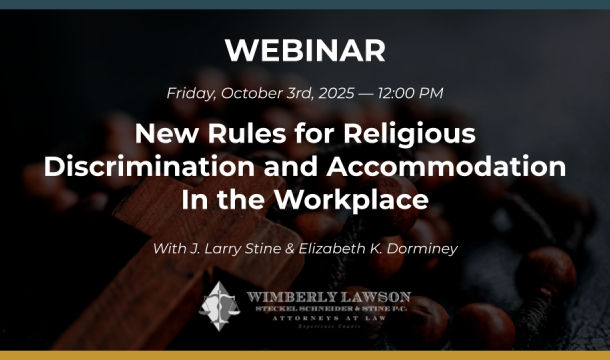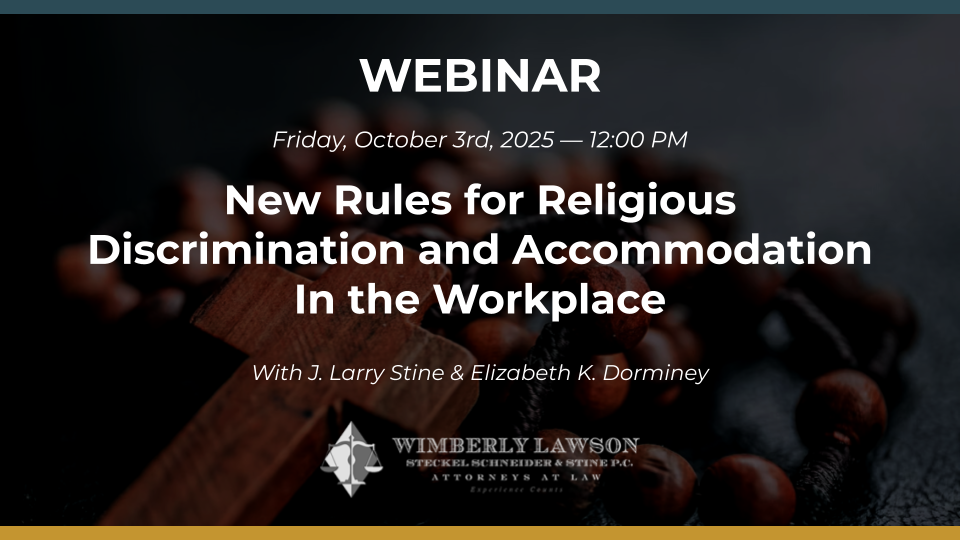Expanded EEO-1 Form Put on Hold
Human resources professionals at companies with 100 or more employees are breathing a sigh of relief today because the Trump administration has put the implementation of the "expanded" EEO-1 form on hold.
On August 29th, the Office of Management and Budget (OMB) informed the Equal Employment Opportunity Commission (EEOC), (via a memo from Neomi Rao, Administrator, Office of Information and Regulatory Affairs to EEOC Acting Chair Victoria Lipnic) that it is initiating a review and immediate stay of the effectiveness of the pay data collection aspects of the EEO-1 form that was revised on September 29, 2016. Among other things, OMB is concerned that some aspects of the revised collection of information lack practical utility, are unnecessarily burdensome, and do not adequately address privacy and confidentiality issues.
[Backstory: EEOC Acting Chair Victoria Lipnic reportedly opposes the "expanded" EEO-1 form, but she does not have enough conservative members on the EEOC to get rid of it. The action by the OMB is basically an "end run" around that problem.]
The "expanded" EEO-1 form was developed during the Obama administration and would have required private employers with 100 or more employees to report annually to the Equal Employment Opportunity Commission summary pay data categorized by sex, race, and ethnicity. The purpose of the revised form was greater pay transparency which was supposed to result in more pay equality. It was strongly opposed by business groups due to concerns about the cost of compliance and the potential litigation risks created by the organization of the pay data.
For now, employers with 100 or more employees and federal government contractors and first-tier subcontractors with 50 or more employees and at least $50,000 in contracts should plan to comply with the earlier approved EEO-1 (Component 1) by the previously set filing date of March 2018. The more onerous reporting requirements of Component 2 have been placed on hold.
The EEOC now must decide whether they want to withdraw the "expanded" EEO-1 form altogether or submit a revised form. In the meantime, EEOC Acting Chair Victoria Lipnic expressed the hope that "this decision will prompt a discussion of other more effective solutions to encourage employers to review their compensation practices to ensure equal pay and close the wage gap."

Kathleen J. Jennings is a former principal in the Atlanta office of Wimberly, Lawson, Steckel, Schneider, & Stine, P.C. She defends employers in employment matters, such as sexual harassment, discrimination, Wage and Hour, OSHA, restrictive covenants, and other employment litigation and provides training and counseling to employers in employment matters.
Related Content
Get Email Updates
Recent Content

Trump Nominates Appointments to NLRB and EEOC but Policy Changes Likely to Be Delayed

DOL Launches Self-Audit Programs Designed to Help Employers Improve Compliance

DOL Must Release EEO-1 Reports to the Public under Open Records Laws

Current Advice on Active-Shooter Situations

New Policy for Federal Workers and Religious Expressions

